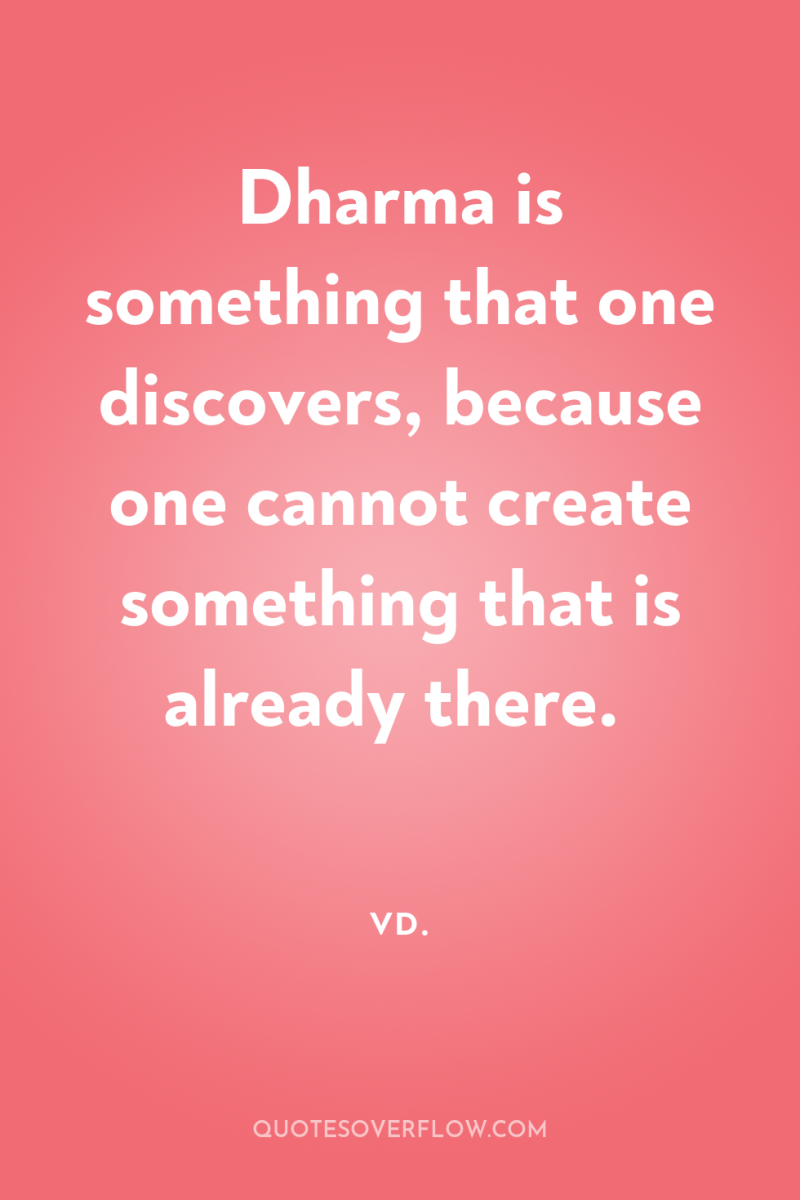
1
Dharma is something that one discovers, because one cannot create something that is already there.VD.
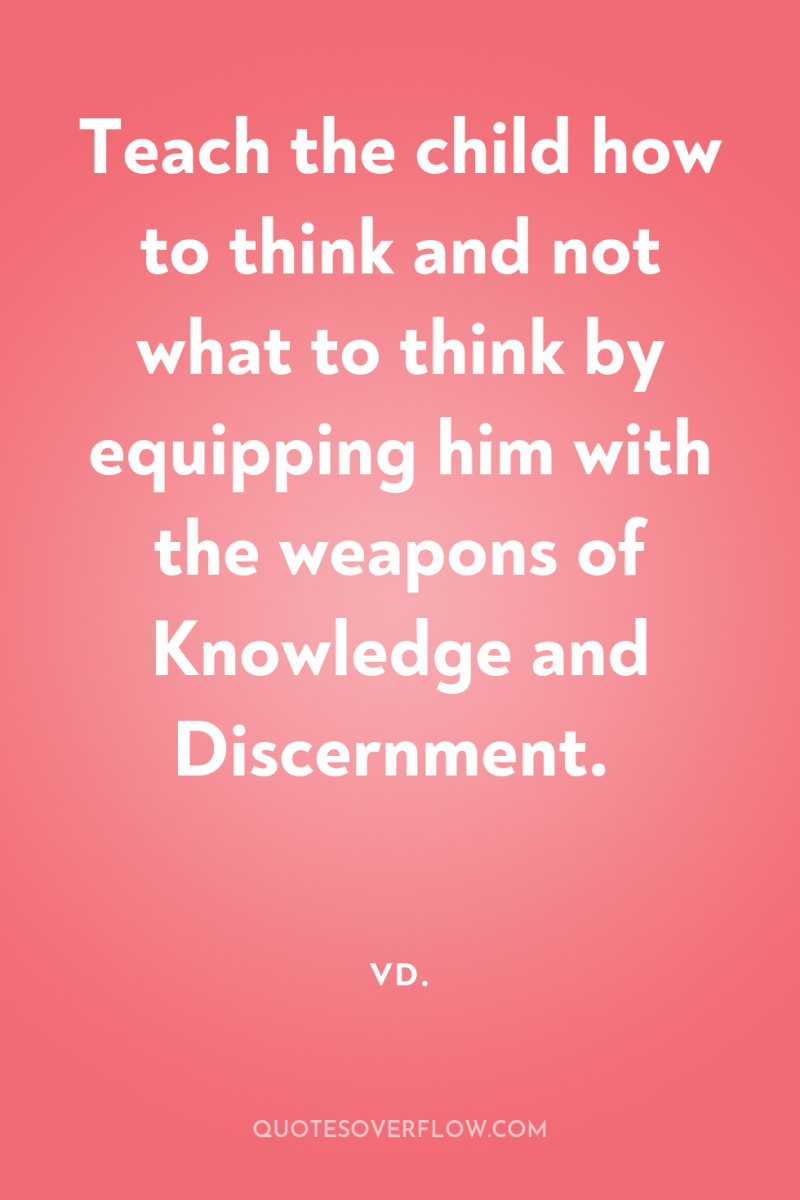
2
Teach the child how to think and not what to think by equipping him with the weapons of Knowledge and Discernment.VD.
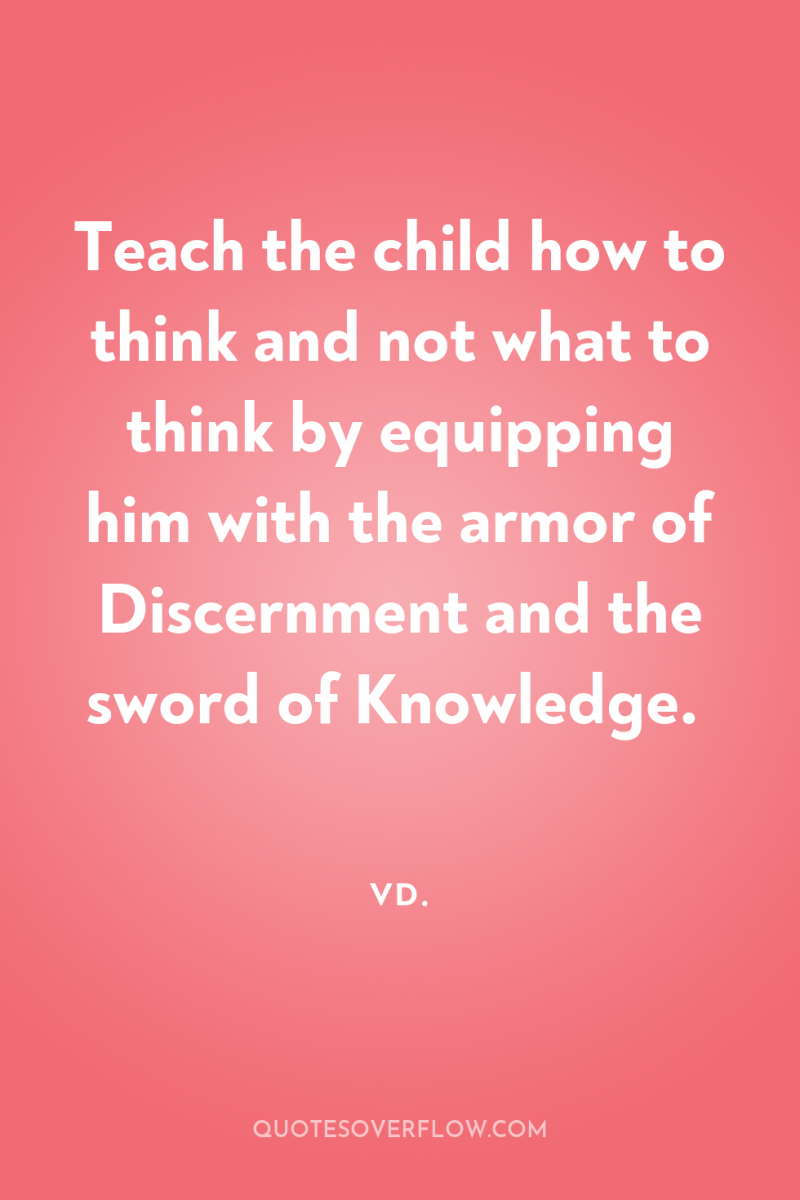
3
Teach the child how to think and not what to think by equipping him with the armor of Discernment and the sword of Knowledge.VD.
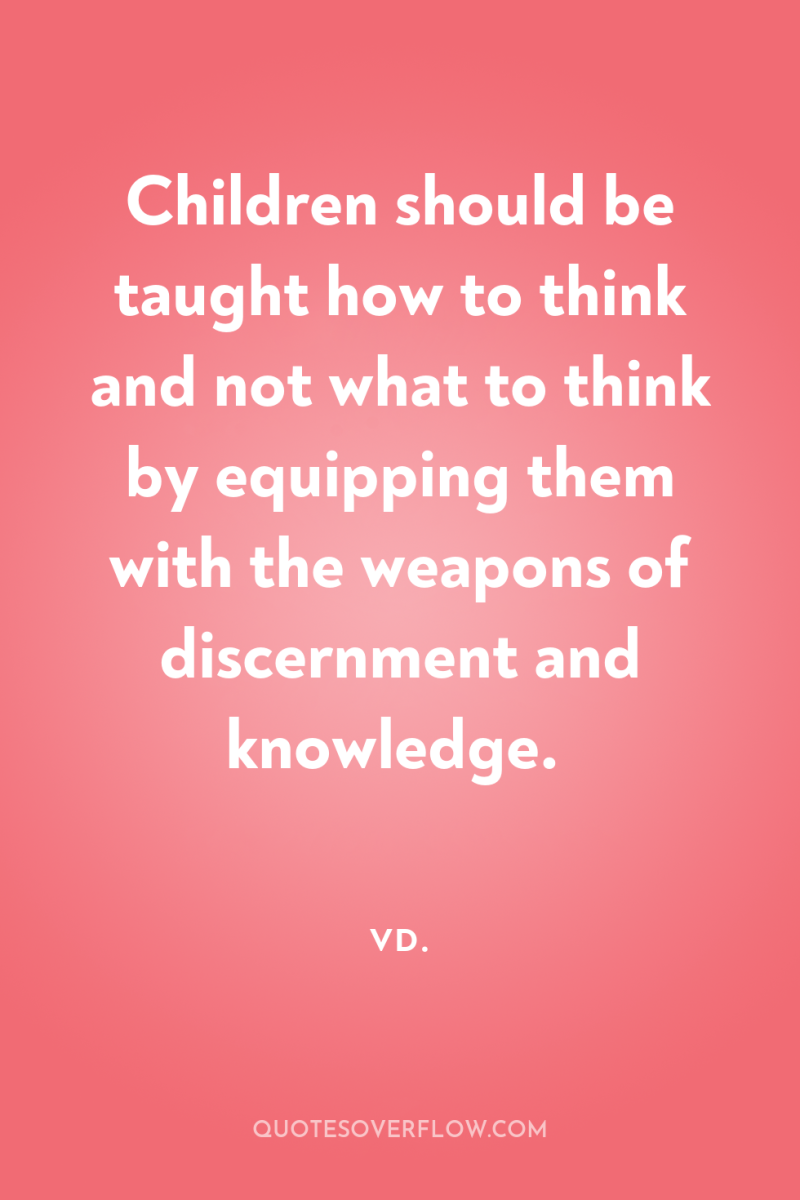
4
Children should be taught how to think and not what to think by equipping them with the weapons of discernment and knowledge.VD.
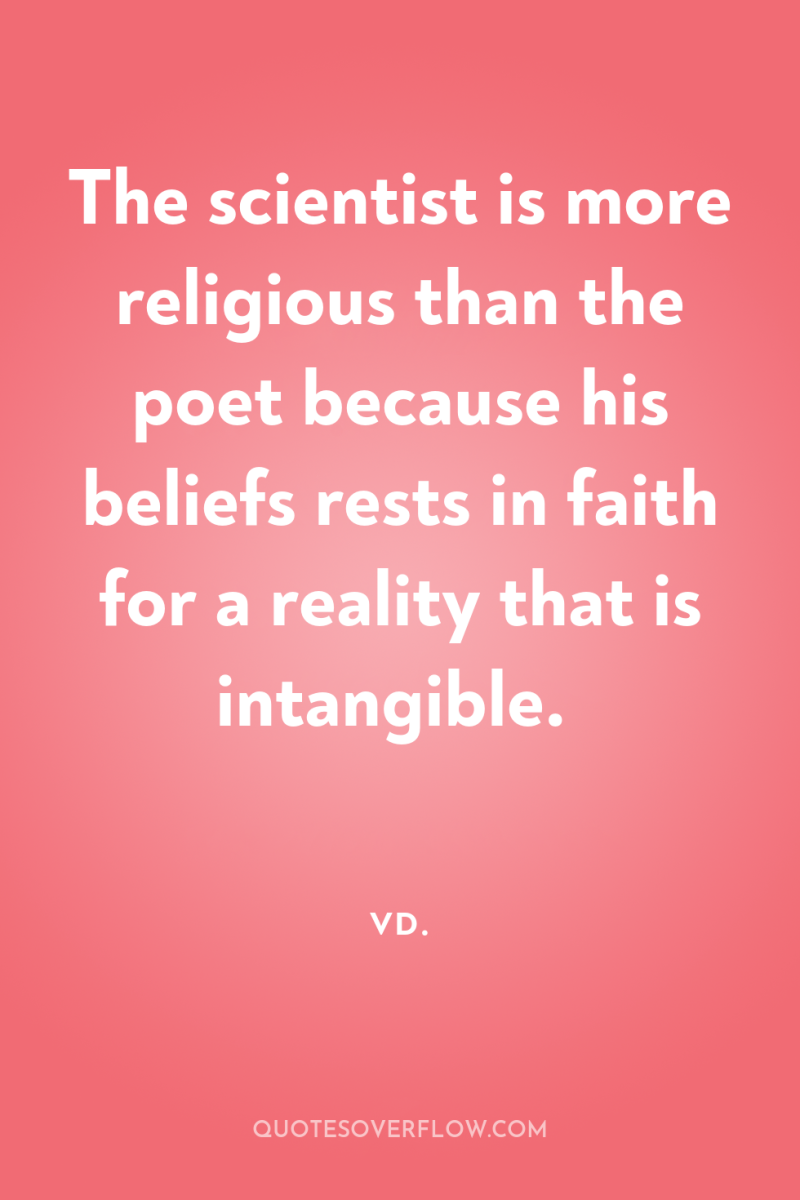
5
The scientist is more religious than the poet because his beliefs rests in faith for a reality that is intangible.VD.
6
The scientist is more religious than the poet because his belief rests in the faith of the intangible — a reality that stands outside of ourselves who are the observers. The poet on the other hand realizes that concepts like Truth and Beauty form the root of our reality, and lie not in the fleeting nature of our world, but in the eternal universal aspects of humanity.VD.
7
The scientist is more religious than the poet because his belief rests in the faith of the intangible —— a reality that stands outside of ourselves who are the observers. The poet on the other hand realizes that concepts like Truth and Beauty which form the root of our reality and identities lie not in the fleeting nature of our world, but in the eternal universal aspects of humanity.VD.
8
The scientist is more religious than the poet because his belief rests in the faith of the intangible —— a reality that stands outside of ourselves who are the observers. The poet on the other hand realizes that concepts like Truth and Beauty lie not in the fleeting nature of our world, but in the eternal aspects of humanity which form the root of our reality and identities.VD.
9
The scientist is more religious than the poet because his belief rests in the faith of the intangible; a reality that stands outside of the observer. The poet on the other hand, concentrates his attention on the source of the experience. In contrast to the scientist, the poet realizes that Truth and Beauty lie not in the fleeting nature of our world, but in the eternal aspects of humanity that is the root of this reality and of ourselves.VD.
10
The scientist is more religious than the poet because his beliefs rests in the faith of a reality that is intangible, one that stands outside of the observer. The poet on the other hand, concentrates his attention on the source of the experience, because he realizes that true identities lie not in the fleeting nature of our world, but in the eternal aspects of humanity that is the root of this reality and of ourselves .VD.
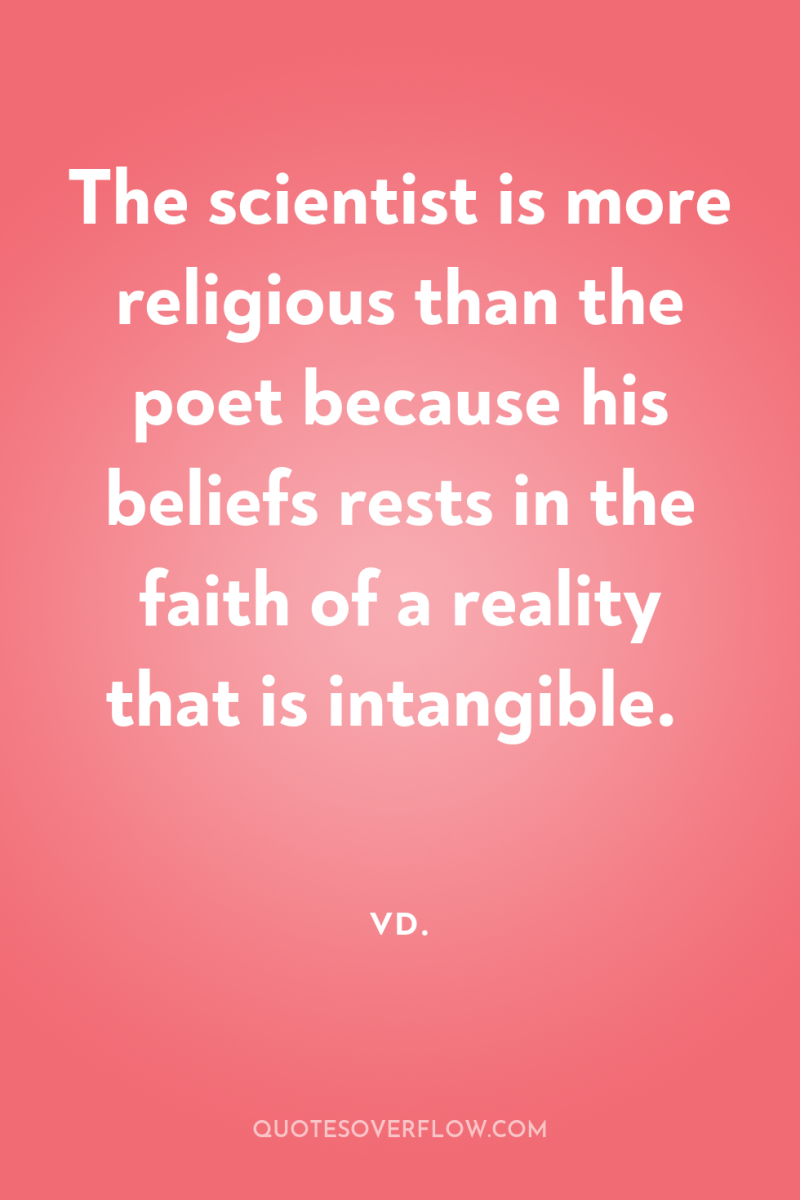
11
The scientist is more religious than the poet because his beliefs rests in the faith of a reality that is intangible.VD.
12
Art that most inspires are the ones that pay attention to aspects of the subconscious condition that we are too busy to notice.VD.
13
Truth is only true if it is true for all.VD.
14
Children must be taught how to think and not what to think. This is the responsibility of parents, if not parents, than the great community, who must equip them with the weapons of discernment and knowledge.VD.
15
Dharma is found because one cannot create what is already there.VD.
16
Dharma is something that one discovers because one cannot create something that is already there.VD.
17
The Left has made the young gullible and materialist, while the Right has turned them into nihilistic cynics. This paradigm of power and struggle, expressed through endless ego-driven duality games will eventually lose steam. The new methodology must reconcile these two extremes by formulating a way of living that embodies the virtues of a natural, universal being - simplicity, patience, and compassion.VD.